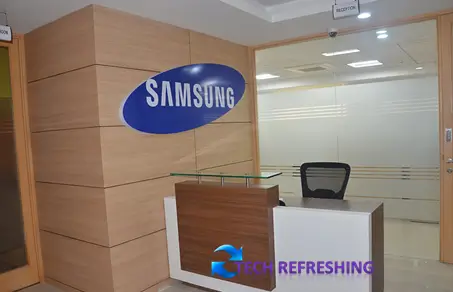
The South Korean tech giant takes action to address potential security risks associated with generative AI tools.
Samsung, one of the world’s leading electronics giants, is cracking down on the use of generative AI tools on its company-owned devices following a data leak incident involving OpenAI’s generative AI chatbot, ChatGPT. The move is aimed at addressing potential security risks associated with using generative AI tools.
The Ban
According to reports, Samsung is planning a temporary ban on the use of generative AI tools on company-owned devices, covering computers, tablets, and phones, as well as non-company-owned devices running on internal networks. The ban would not only cover ChatGPT but also services that use the technology like Microsoft’s Bing, as well as competing generative AI services like Bard from Google.
According to a memo viewed by Bloomberg, Samsung is reportedly developing its own in-house AI tools for software development and translation while it creates security measures to establish a safe environment for the use of generative AI to improve employee productivity and efficiency. This move comes as Samsung plans to temporarily ban the use of generative AI tools on its company-owned devices, including computers, tablets, and phones, as well as non-company-owned devices connected to internal networks, until such security measures are implemented. The duration of the ban is yet to be disclosed.
Impact on Workers and Consumers
Samsung’s temporary ban on the use of generative AI tools will only affect devices issued to its workers, thereby sparing consumers and other individuals who own Samsung phones, laptops, and other connected devices. Nonetheless, the company’s decision to impose the ban reflects its serious approach to addressing potential security risks related to the use of such tools, particularly in the aftermath of the data leak incident.
Challenges Faced by Generative AI Tools
OpenAI’s generative AI chatbot ChatGPT has gained significant popularity since its launch last November. However, there have been concerns around potential violations of data privacy, copyright violations, and inaccuracy in ChatGPT’s responses. Due to analogous concerns, financial institutions such as Bank of America, Citi, Deutsche Bank, Goldman Sachs, Wells Fargo, and JPMorgan have recently limited their employees’ utilization of ChatGPT.
The ban on the use of generative AI tools by Samsung is expected to be effective immediately, but it is not yet clear when it will take effect. Samsung has not yet responded to a request for comment on the matter.
Challenges for Other Tech Companies
As LG and memory chip maker SK Hynix join Samsung in grappling with the creation of guidelines for the use of generative AI tools, it becomes evident that the challenges associated with these tools are not exclusive to Samsung. This implies that other companies will need to tackle similar concerns to guarantee the secure and safe utilization of AI tools in their workplaces.
Conclusion
Samsung’s temporary ban on the use of generative AI tools is a significant step towards addressing potential security risks associated with using AI tools in the workplace. While the move may cause some inconvenience to Samsung workers, it underscores the importance of ensuring the safe and secure use of AI tools in the workplace. It is expected that other companies will follow suit and develop their own guidelines for using generative AI tools to ensure data privacy and security.







